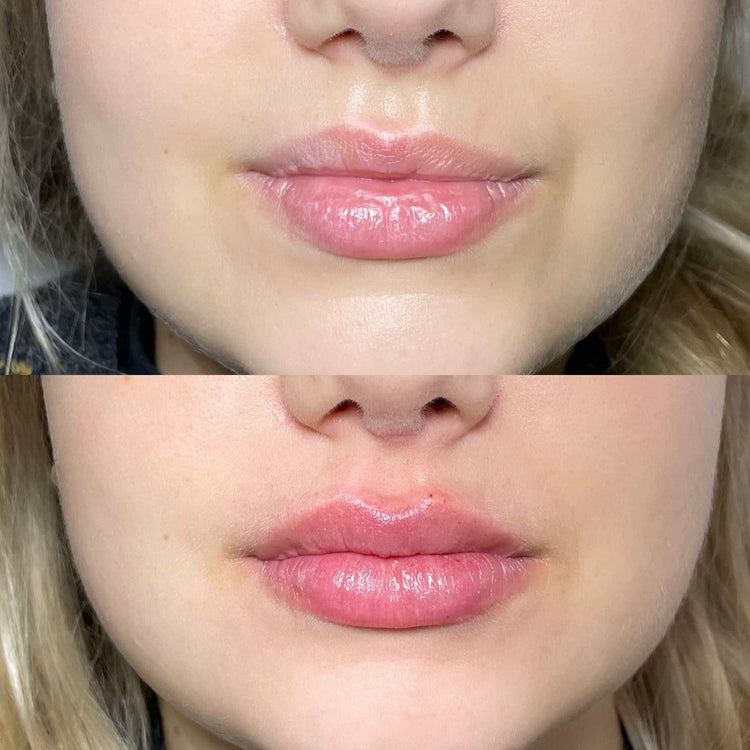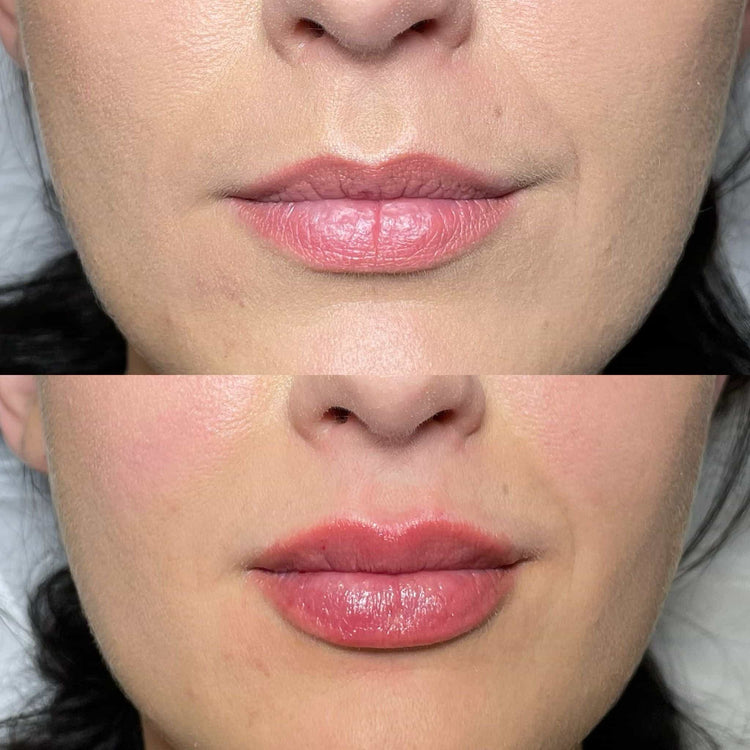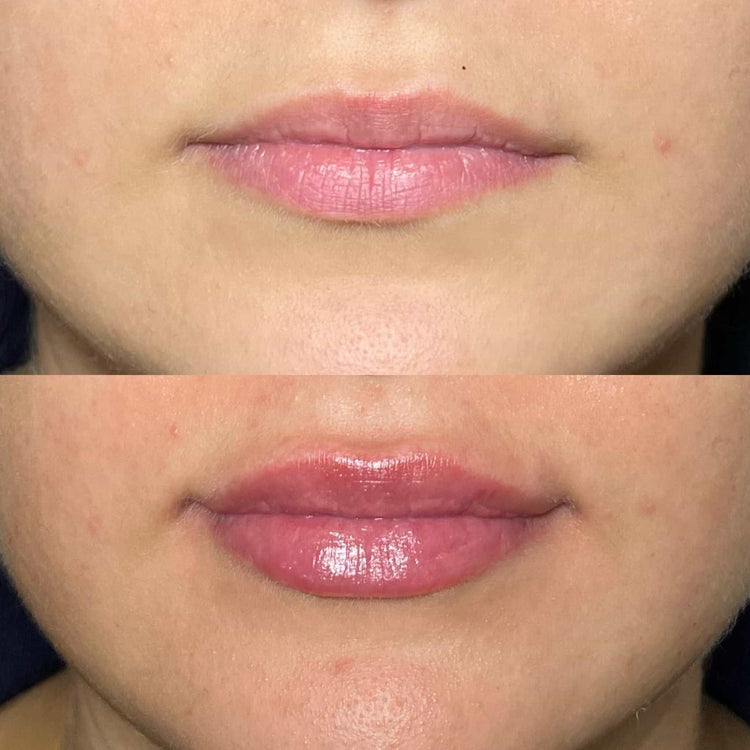Minimizing Discomfort
Lip injections are becoming increasingly popular, offering a way to enhance fullness and shape. While generally safe, they can cause temporary discomfort, including bruising and swelling. Fortunately, there are several strategies you can employ to minimize these side effects and ensure a smoother recovery experience.
Ice Therapy
After lip injections, it’s common to experience some bruising and swelling. These side effects are typically temporary and subside within a few days. To help minimize discomfort and accelerate the healing process, consider the following tips:
- Apply ice packs for 15-20 minutes at a time, several times a day. This helps reduce inflammation and constrict blood vessels, minimizing swelling.
- Keep your lips hydrated by drinking plenty of water.
- Avoid touching or rubbing the injected area excessively as this can increase bruising.
- Skip strenuous activities that may put pressure on your lips for a few days.
- Elevate your head while sleeping to reduce swelling.
Elevation
Elevating your head while sleeping can help minimize swelling in the injected area. By keeping your head slightly elevated, you promote lymphatic drainage, which helps remove excess fluid and reduces puffiness.
Pain Relief Medications
While most bruising and swelling after lip injections resolve within a few days, discomfort can be minimized with pain relief medications. Over-the-counter options like ibuprofen or naproxen can effectively reduce inflammation and pain. It’s essential to follow the recommended dosage instructions on the medication label.
If you experience excessive pain or swelling that doesn’t subside after a few days, consult your doctor or the provider who administered the injections. They may recommend stronger pain medications or other treatments.
Reducing Swelling and Bruising
Lip injections can temporarily cause bruising and swelling as part of the healing process. These side effects are generally mild and resolve within a few days, but there are steps you can take to minimize their impact.
Arnica Gel or Cream
Arnica is a plant that has been traditionally used to reduce bruising and swelling. It’s available in gel or cream form and is often applied topically to the affected area.
While the effectiveness of arnica for bruising and swelling hasn’t been conclusively proven by scientific research, many people find it helpful.
If you choose to use arnica gel or cream after lip injections, apply a thin layer to the bruised or swollen area several times a day.
Cold Compresses
Applying cold compresses is an effective way to reduce swelling and bruising after lip injections. The cold temperature constricts blood vessels, which helps minimize fluid leakage into surrounding tissues, thus reducing inflammation and swelling.
To use a cold compress effectively, wrap ice cubes or a cold pack in a thin towel and apply it to the affected area for 15-20 minutes at a time. Repeat this process several times a day, especially during the first 48 hours after the injections.
Remember to never apply ice directly to your skin as this can cause frostbite.
Compression
After lip injections, it’s common to experience some bruising and swelling. These side effects are typically temporary and subside within a few days. To help minimize discomfort and accelerate the healing process, consider the following tips:
- Apply ice packs for 15-20 minutes at a time, several times a day. This helps reduce inflammation and constrict blood vessels, minimizing swelling.
- Keep your lips hydrated by drinking plenty of water.
- Avoid touching or rubbing the injected area excessively as this can increase bruising.
- Skip strenuous activities that may put pressure on your lips for a few days.
- Elevate your head while sleeping to reduce swelling.
Elevating your head while sleeping can help minimize swelling in the injected area. By keeping your head slightly elevated, you promote lymphatic drainage, which helps remove excess fluid and reduces puffiness.
While most bruising and swelling after lip injections resolve within a few days, discomfort can be minimized with pain relief medications. Over-the-counter options like ibuprofen or naproxen can effectively reduce inflammation and pain. It’s essential to follow the recommended dosage instructions on the medication label.
If you experience excessive pain or swelling that doesn’t subside after a few days, consult your doctor or the provider who administered the injections. They may recommend stronger pain medications or other treatments.
Avoid Sun Exposure
Avoiding sun exposure is crucial after lip injections as it can exacerbate bruising and inflammation. UV rays from the sun can irritate the treated area and prolong healing time.
For several days following your treatment, protect your lips by wearing a broad-spectrum sunscreen with an SPF of 30 or higher. You should also wear a hat with a brim to shield your lips from direct sunlight.
Lifestyle Modifications
Lip injections are gaining popularity as a way to enhance lip shape and fullness. While generally safe, they can lead to temporary bruising and swelling. Fortunately, several lifestyle modifications can help minimize these side effects and promote faster healing.
Hydration
Lip injections are becoming increasingly popular, offering a way to enhance fullness and shape. While generally safe, they can cause temporary discomfort, including bruising and swelling. Fortunately, there are several strategies you can employ to minimize these side effects and ensure a smoother recovery experience.
- Apply ice packs for 15-20 minutes at a time, several times a day. This helps reduce inflammation and constrict blood vessels, minimizing swelling.
- Keep your lips hydrated by drinking plenty of water.
- Avoid touching or rubbing the injected area excessively as this can increase bruising.
- Skip strenuous activities that may put pressure on your lips for a few days.
- Elevate your head while sleeping to reduce swelling.
While most bruising and swelling after lip injections resolve within a few days, discomfort can be minimized with pain relief medications. Over-the-counter options like ibuprofen or naproxen can effectively reduce inflammation and pain. It’s essential to follow the recommended dosage instructions on the medication label.
If you experience excessive pain or swelling that doesn’t subside after a few days, consult your doctor or the provider who administered the injections. They may recommend stronger pain medications or other treatments.
Avoiding sun exposure is crucial after lip injections as it can exacerbate bruising and inflammation. UV rays from the sun can irritate the treated area and prolong healing time.
For several days following your treatment, protect your lips by wearing a broad-spectrum sunscreen with an SPF of 30 or higher. You should also wear a hat with a brim to shield your lips from direct sunlight.
Lip injections can temporarily cause bruising and swelling as part of the healing process. These side effects are generally mild and resolve within a few days, but there are steps you can take to minimize their impact.
Arnica is a plant that has been traditionally used to reduce bruising and swelling. It’s available in gel or cream form and is often applied topically to the affected area.
While the effectiveness of arnica for bruising and swelling hasn’t been conclusively proven by scientific research, many people find it helpful.
If you choose to use arnica gel or cream after lip injections, apply a thin layer to the bruised or swollen area several times a day.
Applying cold compresses is an effective way to reduce swelling and bruising after lip injections. The cold temperature constricts blood vessels, which helps minimize fluid leakage into surrounding tissues, thus reducing inflammation and swelling.
To use a cold compress effectively, wrap ice cubes or a cold pack in a thin towel and apply it to the affected area for 15-20 minutes at a time. Repeat this process several times a day, especially during the first 48 hours after the injections.
Remember to never apply ice directly to your skin as this can cause frostbite.
Healthy Diet
Lip injections are becoming increasingly popular, offering a way to enhance fullness and shape. While generally safe, they can cause temporary discomfort, including bruising and swelling. Fortunately, there are several strategies you can employ to minimize these side effects and ensure a smoother recovery experience.
- Apply ice packs for 15-20 minutes at a time, several times a day. This helps reduce inflammation and constrict blood vessels, minimizing swelling.
- Keep your lips hydrated by drinking plenty of water.
- Avoid touching or rubbing the injected area excessively as this can increase bruising.
- Skip strenuous activities that may put pressure on your lips for a few days.
- Elevate your head while sleeping to reduce swelling.
While most bruising and swelling after lip injections resolve within a few days, discomfort can be minimized with pain relief medications. Over-the-counter options like ibuprofen or naproxen can effectively reduce inflammation and pain. It’s essential to follow the recommended dosage instructions on the medication label.
If you experience excessive pain or swelling that doesn’t subside after a few days, consult your doctor or the provider who administered the injections. They may recommend stronger pain medications or other treatments.
Avoiding sun exposure is crucial after lip injections as it can exacerbate bruising and inflammation. UV rays from the sun can irritate the treated area and prolong healing time.

For several days following your treatment, protect your lips by wearing a broad-spectrum sunscreen with an SPF of 30 or higher. You should also wear a hat with a brim to shield your lips from direct sunlight.

Lip injections can temporarily cause bruising and swelling as part of the healing process. These side effects are generally mild and resolve within a few days, but there are steps you can take to minimize their impact.
Arnica is a plant that has been traditionally used to reduce bruising and swelling. It’s available in gel or cream form and is often applied topically to the affected area.
While the effectiveness of arnica for bruising and swelling hasn’t been conclusively proven by scientific research, many people find it helpful.
If you choose to use arnica gel or cream after lip injections, apply a thin layer to the bruised or swollen area several times a day.
Applying cold compresses is an effective way to reduce swelling and bruising after lip injections. The cold temperature constricts blood vessels, which helps minimize fluid leakage into surrounding tissues, thus reducing inflammation and swelling.

To use a cold compress effectively, wrap ice cubes or a cold pack in a thin towel and apply it to the affected area for 15-20 minutes at a time. Repeat this process several times a day, especially during the first 48 hours after the injections.
Remember to never apply ice directly to your skin as this can cause frostbite.
Rest and Sleep
Lip injections are becoming increasingly popular, offering a way to enhance fullness and shape. While generally safe, they can cause temporary discomfort, including bruising and swelling. Fortunately, there are several strategies you can employ to minimize these side effects and ensure a smoother recovery experience.
- Apply ice packs for 15-20 minutes at a time, several times a day. This helps reduce inflammation and constrict blood vessels, minimizing swelling.
- Keep your lips hydrated by drinking plenty of water.
- Avoid touching or rubbing the injected area excessively as this can increase bruising.
- Skip strenuous activities that may put pressure on your lips for a few days.
- Elevate your head while sleeping to reduce swelling.
While most bruising and swelling after lip injections resolve within a few days, discomfort can be minimized with pain relief medications. Over-the-counter options like ibuprofen or naproxen can effectively reduce inflammation and pain. It’s essential to follow the recommended dosage instructions on the medication label.
If you experience excessive pain or swelling that doesn’t subside after a few days, consult your doctor or the provider who administered the injections. They may recommend stronger pain medications or other treatments.
Avoiding sun exposure is crucial after lip injections as it can exacerbate bruising and inflammation. UV rays from the sun can irritate the treated area and prolong healing time.
For several days following your treatment, protect your lips by wearing a broad-spectrum sunscreen with an SPF of 30 or higher. You should also wear a hat with a brim to shield your lips from direct sunlight.
Lip injections are becoming increasingly popular, offering a way to enhance fullness and shape. While generally safe, they can cause temporary discomfort, including bruising and swelling. Fortunately, there are several strategies you can employ to minimize these side effects and ensure a smoother recovery experience.
- Apply ice packs for 15-20 minutes at a time, several times a day. This helps reduce inflammation and constrict blood vessels, minimizing swelling.
- Keep your lips hydrated by drinking plenty of water.
- Avoid touching or rubbing the injected area excessively as this can increase bruising.
- Skip strenuous activities that may put pressure on your lips for a few days.
- Elevate your head while sleeping to reduce swelling.
While most bruising and swelling after lip injections resolve within a few days, discomfort can be minimized with pain relief medications. Over-the-counter options like ibuprofen or naproxen can effectively reduce inflammation and pain. It’s essential to follow the recommended dosage instructions on the medication label.
If you experience excessive pain or swelling that doesn’t subside after a few days, consult your doctor or the provider who administered the injections. They may recommend stronger pain medications or other treatments.
Avoiding sun exposure is crucial after lip injections as it can exacerbate bruising and inflammation. UV rays from the sun can irritate the treated area and prolong healing time.
For several days following your treatment, protect your lips by wearing a broad-spectrum sunscreen with an SPF of 30 or higher. You should also wear a hat with a brim to shield your lips from direct sunlight.
Seeking Professional Help
Lip injections are becoming increasingly popular for enhancing lip fullness and shape. While generally safe, temporary side effects like bruising and swelling can occur. Fortunately, there are steps you can take to minimize these effects and promote faster healing.
Follow Up Appointments
Lip injections can temporarily cause bruising and swelling as part of the healing process. These side effects are generally mild and resolve within a few days, but there are steps you can take to minimize their impact.
Here are some tips:
* **Apply ice packs:** Applying ice packs for 15-20 minutes at a time, several times a day, helps reduce inflammation and constrict blood vessels, minimizing swelling.
* **Hydrate adequately:** Drinking plenty of water keeps your lips hydrated and can promote healing.
* **Avoid touching or rubbing the area:** Touching or rubbing the injected area can increase bruising.
* **Limit strenuous activity:** Avoid activities that put pressure on your lips for a few days after treatment.
* **Elevate your head while sleeping:** This can help reduce swelling by promoting lymphatic drainage.
* **Over-the-counter pain relievers:** Ibuprofen or naproxen can effectively reduce inflammation and pain. Follow the recommended dosage instructions.
If you experience excessive pain, swelling, or any signs of infection, consult your doctor or the provider who administered the injections promptly.
Address Complications Promptly
Lip injections are becoming increasingly popular for enhancing lip fullness and shape. While generally safe, temporary side effects like bruising and swelling can occur. Fortunately, there are steps you can take to minimize these effects and promote faster healing.
If you experience excessive pain or swelling that doesn’t subside after a few days, consult your doctor or the provider who administered the injections. They may recommend stronger pain medications or other treatments.
Seeking professional help is essential if you notice any signs of infection, such as redness, warmth, pus, or increased pain. Delaying treatment could lead to complications.
Book your lip injection appointment with Dr. Laura Geige at It’s Me & You Clinic
- Genderflux And The Experience Of Shifting Gender Identity Over Time - May 12, 2025
- Neauvia Hydro Deluxe Skin Booster Treatments Near Sunbury On Thames, Surrey - May 12, 2025
- Lip Flip Treatment Near Lingfield, Surrey - May 12, 2025
